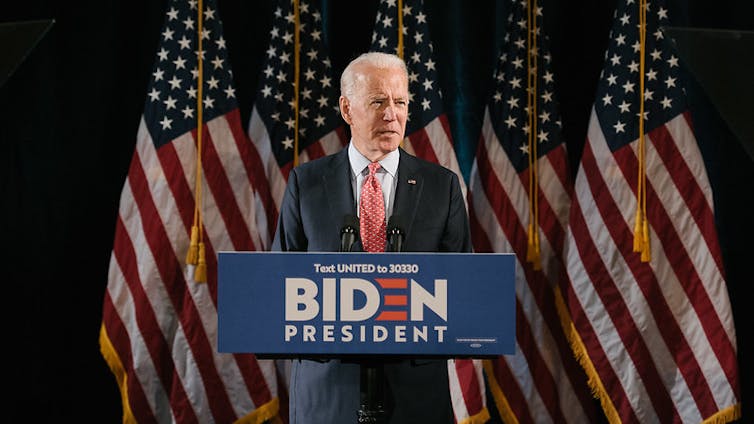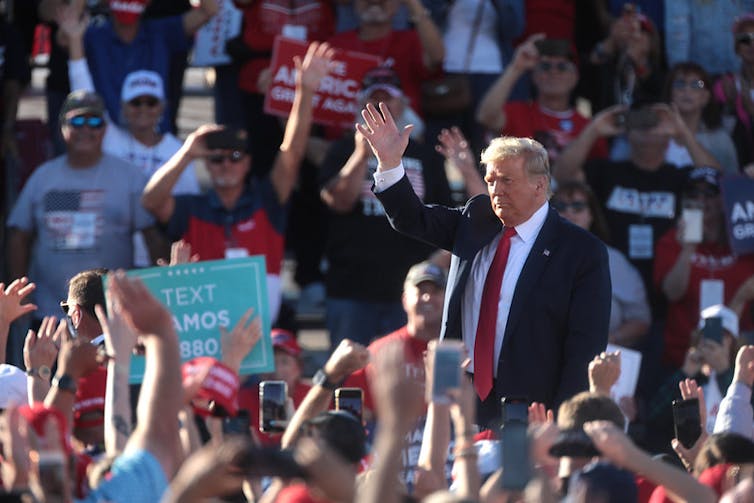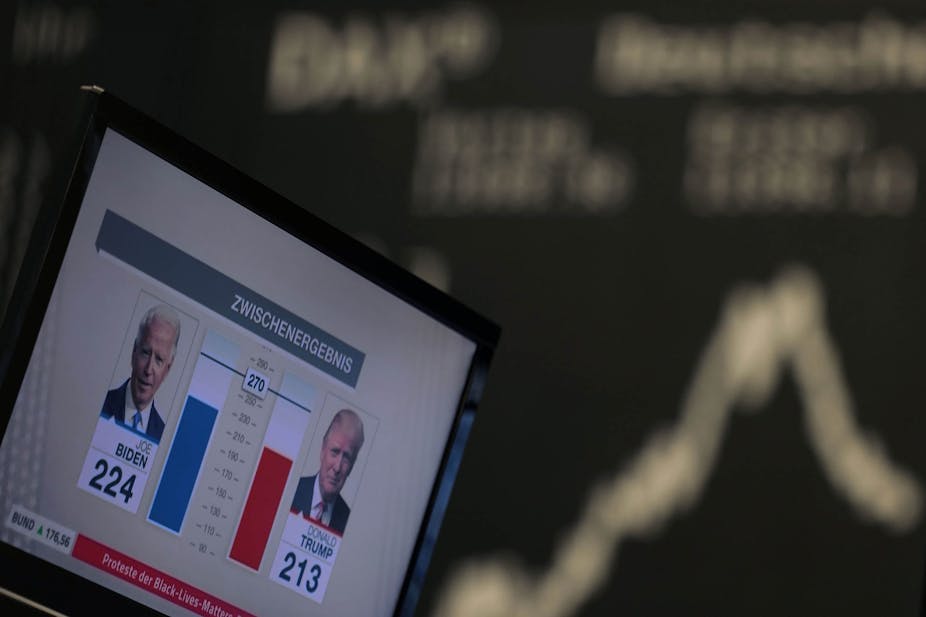Indonesia prefers Joe Biden, currently leading the US election, over incumbent Donald Trump, according to experts.
“If Biden is elected, then the tension in the trade war will decrease, demand for Indonesian good will increase and also capital or investment that flows into the country,” said Bhima Yudhistira Adhinegara, a researcher at the Institute for Development of Economics and Finance (INDEF).
Having a president that creates a favourable trade policy towards Indonesia is important, according to Bhima, as the United States’ contribution to the Indonesian economy is quite significant.
In September, the US was the second-largest contributor for exports of goods and services from Indonesia sold abroad with a total of US$ 1.69 billion.
This amount is equivalent to 12.68% of Indonesia’s total exports or around US$14 billion in September this year. The US came second after China, which contributed nearly 20% of Indonesia’s exports at US$ 2.63 billion.

Biden has more positive sentiments than Trump
Bhima argued that Biden is the better candidate. He said Biden has experience in establishing more productive relations between countries, such as during his time as vice president to Barack Obama.
Fithra Faisal Hastiadi, a researcher and lecturer in economics at the University of Indonesia, also projects that Biden will prefer multilateral or several countries partnership compared to Trump that prefers bilateral agreements.
Obama and Biden were the initiators of the Trans-Pacific Partnership (TPP) cooperation framework in 2008, which is a trade agreement containing 12 countries. However, Trump withdrew from TPP in 2018 and is more focused on bilateral discussions.
Both Biden and Trump, however, have a similar perspective on China’s influence on Asia. If Obama and Biden use the TPP as a way to reduce China’s dominance in Asia as well as efforts to penetrate the market, Trump is far more aggressive in taking a more direct approach by using trade wars.
“With Biden, although it looks like Indonesia is about to start over from scratch, the potential for reinforcing commitments between America and Indonesia also seems wide open,” Fithra said.
On the other hand, Bhima also sees that the economic stimulus policy in the democratic party will encourage the recovery of the middle-class purchasing power in the US with Biden’s agenda to increase the federal minimum wage up to US$ 15/hour.
“The impact is the demand for goods from Indonesia will be even greater if the purchasing power in the US increases,” Bhima added.
Bhima also emphasises about the impact on Indonesia’s financial markets, Biden will provide a breath of fresh air to foreign capital flows if elected. US investors who have been playing it safe by buying gold, dollars and Japanese yen will begin to venture into emerging markets like Indonesia.
The Jakarta Composite Index (JCI) or Indonesia’s stock exchange increased by 4.72% last month to reach the level of 5,159.
One of the things that investors will be looking for is Indonesian government bonds because they offer high-interest rates to investors. Investment from the US will also increase in size if trade relations improve, according to Bhima.

Trump surrounded by controversies that impact Indonesia’s economy
According to Fithra, with Trump elected, Indonesia’s cooperation with the United States will still grow.
One of the recent positive sentiments coming from Trump administration is the extension of the general system of preferences (GSP) facility. GSP is a free import duty program for several imported products from Indonesia.
The extension of the program is a sign of a strategic partnership between Indonesia and the US, as previously it has discontinued the GSP program for other countries such as India and Thailand.
The US Secretary of State, Mike Pompeo visit to extend the GSP program also explored the possibility of opening other limited trade agreements; Indonesia could reap more significant results in the future.
However, there are also Trump’s controversies that will continue to create negative sentiments for Indonesia.
According to Bhima, Trump’s policy of protectionism or tightening trade from other countries has harmed Indonesia’s economic interests. This is evident from the sluggish performance of Indonesia’s exports even before the pandemic due to the low demand for raw materials to China and direct export to the US.
Since 2018 Trump has carried out a trade war with China, Indonesia’s biggest importer, by raising taxes on imported goods originating from China
Indonesia’s exports throughout 2019 only reached US$ 167.53 billion, this figure fell sharply by 6.94% compared to the previous year’s achievement of US$ 180.01 billion.
Bhima also predicts that if Trump wins then the stimulus will be more focusing on reducing taxes for the wealthy individuals. Hence the demands for goods from the US may not be as high as compared if Biden win.
Positive trend going forward
Fithra projected after the COVID-19 pandemic ends, the United States will aim to reduce its dependence on production from China and look for alternative places. This trend has at least been seen in the last few months when Indonesia’s exports to the United States have grown.
Some of the products such as raw materials for drug manufacturing previously imported from China were diverted to Indonesia. This phenomenon is the first phase of relocation by the United States to alternative markets. The second stage is the transfer of its strategic industries from China to ASEAN. Indonesia should be able to seize these opportunities, according to Fithra.
“Armed with improved negotiation skills, Indonesia will increasingly get positive results going forward,” Fithra concluded.


